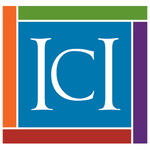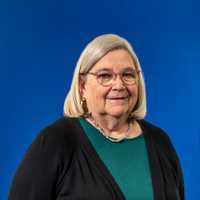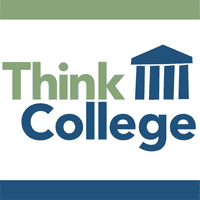The number of people with disabilities who work in competitive jobs is growing.

Career and technical education can improve post-school outcomes for students with disabilities.

Areas of Success
We offer actionable solutions that increase opportunities for people with disabilities to achieve employment in our competitive and vibrant economy.
We promote self-sufficiency.
We study and publish the latest trends on employment & economic self-sufficiency for people with intellectual disabilities.
We expand economic opportunities.
All people want an opportunity to do paid work. Work is one way people with disabilities contribute to their communities and to the economy.
We engage with businesses.
Research has shown that people with disabilities are an untapped, qualified resource in the labor market. Business engagement is a key component in improving employment outcomes.
We are committed to academic excellence.
Our evidence-based research helps inform public policy at the federal, state, and local levels to improve employment and education outcomes.
Areas of Emphasis
We investigate real-world problems and challenges through our vast network of research projects, program evaluation, training, consultation, education, policy analysis, and service delivery.
Employment
Building a rewarding career in the community should be an expectation for all citizens. With support and planning, people with significant disabilities can thrive in the workplace.
Education
From pre-K through university, schools are engaging and involving students with a range of disabilities. By building skills early, young people can exit high school prepared to pursue higher education and find jobs that match their interests.
Community
Outside of work and school, people with disabilities are involved in a wide range of activities that make up a satisfying life. Whether it's getting involved with a faith community, attending a sports event, or volunteering at a local charity, people with disabilities participate in their community.
Health Care
Accessing quality health care enables us to live productively and to receive support when facing mental, behavioral, or physical challenges. For people with disabilities, adequate health care can require additional advocacy and planning.
New at ICI
We’re Hiring! The Institute for Community Inclusion is Hiring a New Director
The Institute for Community Inclusion (ICI) at the University of Massachusetts Boston (UMass Boston) is hiring a new director to lead us into 2026. The ICI supports the rights of people with disabilities to participate in all aspects of society. We…
Exciting New Vocational Rehabilitation Projects Expand ICI’s Research and Training Efforts
The Institute for Community Inclusion (ICI) has been a leader in vocational rehabilitation (VR) research, training, and technical assistance for decades. In recent years, our VR- related work has largely focused on leadership development, Progressive…
ICI is seeking two postdoctoral fellows to join its Advanced Rehabilitation Research Training (ARRT) Program
Beginning in Spring 2026, in collaboration with the School for Global Inclusion and Social Development (SGISD) and the National Association of State Directors of Developmental Disabilities Services (NASDDDS), the new program launches. Learn more…
ICI Director Cindy Thomas to Retire this November
Congratulations to Cindy Thomas! On November 1, Cindy will retire from her position as ICI’s director. Cindy has held many dynamic roles at the ICI and Boston Children’s Hospital (BCH) over the past 43 years. After working as a case manager for the…
ICI’s Think College Awarded 5-Year $10 Million Grant
The Institute for Community Inclusion (ICI) at UMass Boston is proud to announce that Think College will continue to lead as the long-standing National Coordinating Center (NCC) for the Transition and Postsecondary Programs for Students with…
Featured Project
ThinkWork!
ThinkWork serves as the hub for an array of research, training, and technical assistance efforts focused on employment of people with intellectual and developmental disabilities (IDD).
Staff
Our Mission: The Institute for Community Inclusion (ICI) at UMass Boston supports the rights of children and adults with disabilities to participate in all aspects of society. As practitioners, researchers, and teachers, we form partnerships with individuals, families, community organizations, and service agencies. Together, we advocate for personal choice and self-determination.



